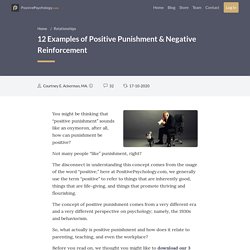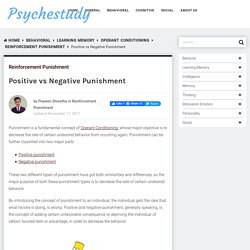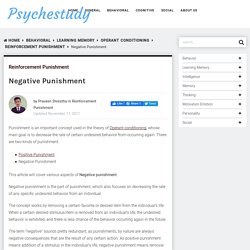

These two are to facilitate to
strengthens or increases the probability of a response, or punishment which weakens
or decreases the probability of a response (Yeo et al., 2021)
Secrets of the teenage brain. Several years ago Frances E Jensen’s 16-year-old son wrote off a car.

A few years earlier, her other son had returned from a friend’s house with his hair dyed jet black. The University of Pennsylvania neurologist was finding her teenagers’ erratic behaviour increasingly taxing, so she decided to study teenage thought processes and gathered her research in the book The Teenage Brain. She found that while much had been written about teen psychology and parenting, no one had explained the neurons and cerebral connections that make those years such a unique – and terrifying – part of growing up.
Understanding Your TeenagerThe Center for Parenting Education. In this 2nd part of the series, we explore the developmental growth of teens which can cause huge emotional and social changes during adolescence.

A lot of confusion and tension can be lessened when parents are clearer about why their teenagers act as they do. But the stress of adolescence is not inevitable. In truth, only about 10% of teens in our society experience major disruptions and find themselves in serious trouble. Cultural Influences It is interesting to consider that in primitive cultures, adolescents have similar physiological changes, but do not have many of the other characteristics of teens in our society.
Common Behaviors You'll See During Each Teen Year. Understanding Teenagers’ Brains and Behaviour. Risk Taking and Peer Pressure Adults often think of risk taking as being negative and associated with danger, however it’s a positive and necessary trait for development.

Risk taking is important as it pushes us to have new experiences and to challenge ourselves. 12 Examples of Positive Punishment & Negative Reinforcement. You might be thinking that “positive punishment” sounds like an oxymoron, after all, how can punishment be positive?

Not many people “like” punishment, right? The disconnect in understanding this concept comes from the usage of the word “positive;” here at PositivePsychology.com, we generally use the term “positive” to refer to things that are inherently good, things that are life-giving, and things that promote thriving and flourishing. Learning: Negative Reinforcement vs. Punishment. Operant conditioning: Positive-and-negative reinforcement and punishment. Negative reinforcement: Definition and examples. Parenting A Teen Through Positive Reinforcement - Back On Track. Most parents can agree: the teenage years can be rough!

Hormones are raging, they are trying to gain more independence, and they spend a lot of time away from their parents and their home while hanging with friends. One minute they love and adore you, the next minute you ruined their life. Positive Reinforcement for Adolescents. By the time children have reached adolescence, their responses are often ingrained, but parental actions can still positively affect adolescent behavior. Since adolescents are struggling to develop their personal identity and are concerned about their body image, parental support is crucial to help positively frame experiences as learning opportunities.
Positive reinforcement remains a powerful teaching tool during these formative years, and we encourage parents to take time to contemplate the ways they can help adolescents mature and become self-reliant. Reinforce mature decisions by allowing increased privileges when adolescent demonstrates increased responsibility. For instance, an adolescent who consistently demonstrates the ability to come home at the requested time might be allowed a later curfew - whereas an adolescent who has not completed requested chores will not be allowed to leave home that evening.Express pleasure at positive adolescent behavior. Teen Discipline part 4, Creating a Reward System. Positive Reinforcement - Tips for teaching and parenting. Positive Punishment: What Is It And How It Works? - MomJunction.
Positive punishment!

Sounds like a perfect oxymoron. But how can a punishment be positive? How to Reward Your Teen for Good Behavior. Teenagers are young adults who are trying to learn the ways of the world.

When they do something great at school or at home or simply make a healthy decision, parents can give them a reward. The reward does not have to be money, but it is a nice way to say "thank you" or "I'm proud of you. " Teens need this positive reinforcement because it shows them that they are on the right track.1 It is also a good life lesson that you can pass on: good things happen to good people. When Do Teenagers Deserve a Reward? Positive vs Negative Punishment - Psychestudy. Punishment is a fundamental concept of Operant Conditioning, whose major objective is to decrease the rate of certain undesired behavior from occurring again.

Punishment can be further classified into two major parts These two different types of punishment have got both similarities and differences, as the major purpose of both these punishment types is to decrease the rate of certain undesired behavior. By introducing the concept of punishment to an individual, the individual gets the idea that what he/she is doing, is wrong. Positive and negative punishment, generally speaking, is the concept of adding certain unfavorable consequence or depriving the individual of certain favored item or advantage, in order to decrease the behavior. Differences Between Positive and Negative Punishment. Negative Punishment - Psychestudy. Punishment is an important concept used in the theory of Operant conditioning, whose main goal is to decrease the rate of certain undesired behavior from occurring again.

There are two kinds of punishment This article will cover various aspects of Negative punishment.